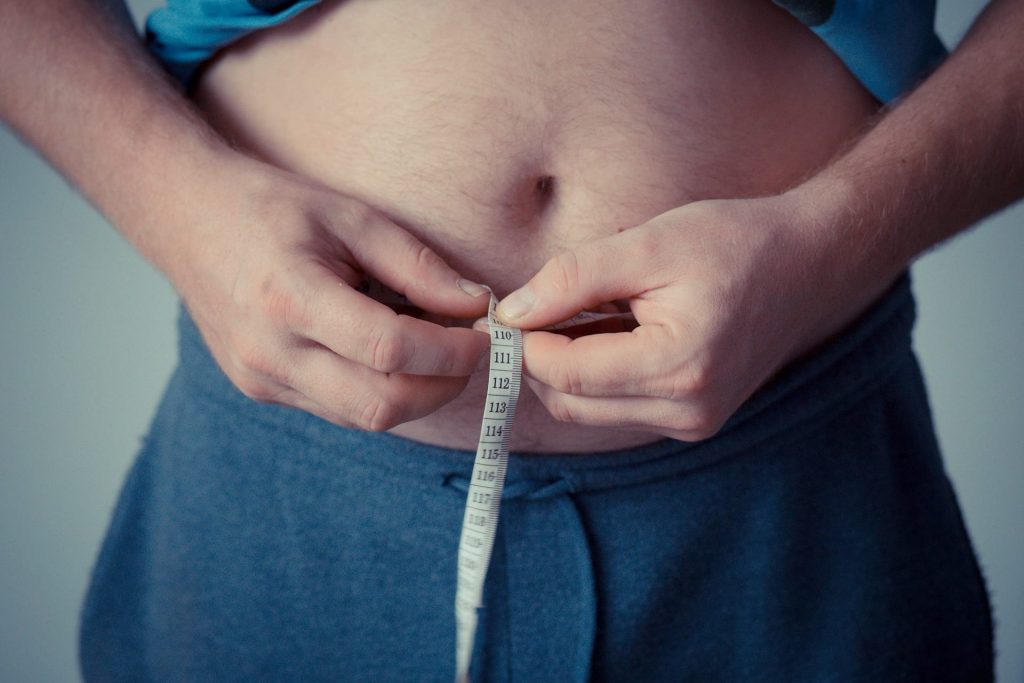
About how to maintain a good figure when metabolism and hormones work against you.
Some people after 40 years of age begin to gain weight, despite the fact that the diet and level of physical activity do not change.
Even if you are still active, the aging process has already started in the body: metabolism slows down, the amount of muscle mass, and some hormones that are important to maintaining a good figure are reduced. We will analyze the reasons for the appearance of excess weight and tell you how to deal with it.
Metabolism slows down
In a large-scale study in 2010, more than 8 thousand people of different ages were tested and found that in adults after 40 years of age, the basic metabolism decreases by 3.1–3.3%.
This means that the body at rest burns 50-60 kilocalories less per day. It seems that this is not too much, but if you do not change the level of physical activity and the usual diet, you can gain three kilograms per year.
What to do with it
You need to rethink your diet and reduce calorie intake. If you want to lose weight, reduce the number of fast carbohydrates, at least roughly count the calories consumed, and try not to exceed the daily norm.
Remember that even small changes lead to significant results in the long run. Having cut your diet by 60–100 kilocalories and making your diet healthier, you will lay a solid foundation for maintaining good physical shape for years to come.
Muscle mass is lost
After 50 years, muscle mass decreases very quickly – up to 15% per year. However, the process of muscle and strength loss starts after the third dozen. According to a 2013 study, the difference in the amount of muscle mass in people under 40 and after 40 years is from 16.6 to 40.9%.
Age-related changes, lack of physical activity, decreased testosterone levels – all this negatively affects the amount of muscle mass, and the body spends many calories on its maintenance. Losing muscle, you further reduce metabolism and increase your chance to gain extra pounds.
What to do with it
If you still haven’t been involved in sports, now is the time to start. Strength training combined with high protein intake will help you maintain and increase muscle mass.
The hormonal background changes
In women after 35 years of age, a decrease in estrogen production is observed, which eventually leads to menopause. And although an excess of estrogen contributes to the accumulation of fat, its lack is also bad for weight. The transition to the postmenopausal period is characterized by an increase in the amount of abdominal fat and the level of glucose and insulin.
In men, testosterone levels decrease after 30, but this becomes especially noticeable after 40 years. According to a 1991 study, in men after 39 years of age, the level of free testosterone (not associated with proteins) is reduced by about 1.2% every year.
Depression, decreased libido, loss of muscle mass and an increase in the percentage of fat are all signs of a decrease in testosterone levels.
What to do with it
Check the thyroid gland – a body directly involved in the production of hormones. About 20% of women after 40 years of age suffer from thyroid problems. If you feel lethargic and are gaining weight for no apparent reason, ask your doctor if it is worth taking the hormone balance test. Perhaps hormone replacement therapy can help you avoid weight gain.
In addition, there are natural ways to increase testosterone: strength training, a high-protein, sugar-free diet, and stress-free exercise.
After 40 years, you can keep fit, especially if healthy eating and training become part of your lifestyle. And while time works against you, at 40 you may well look better than at 30.
Picture Credit: Pixabay






